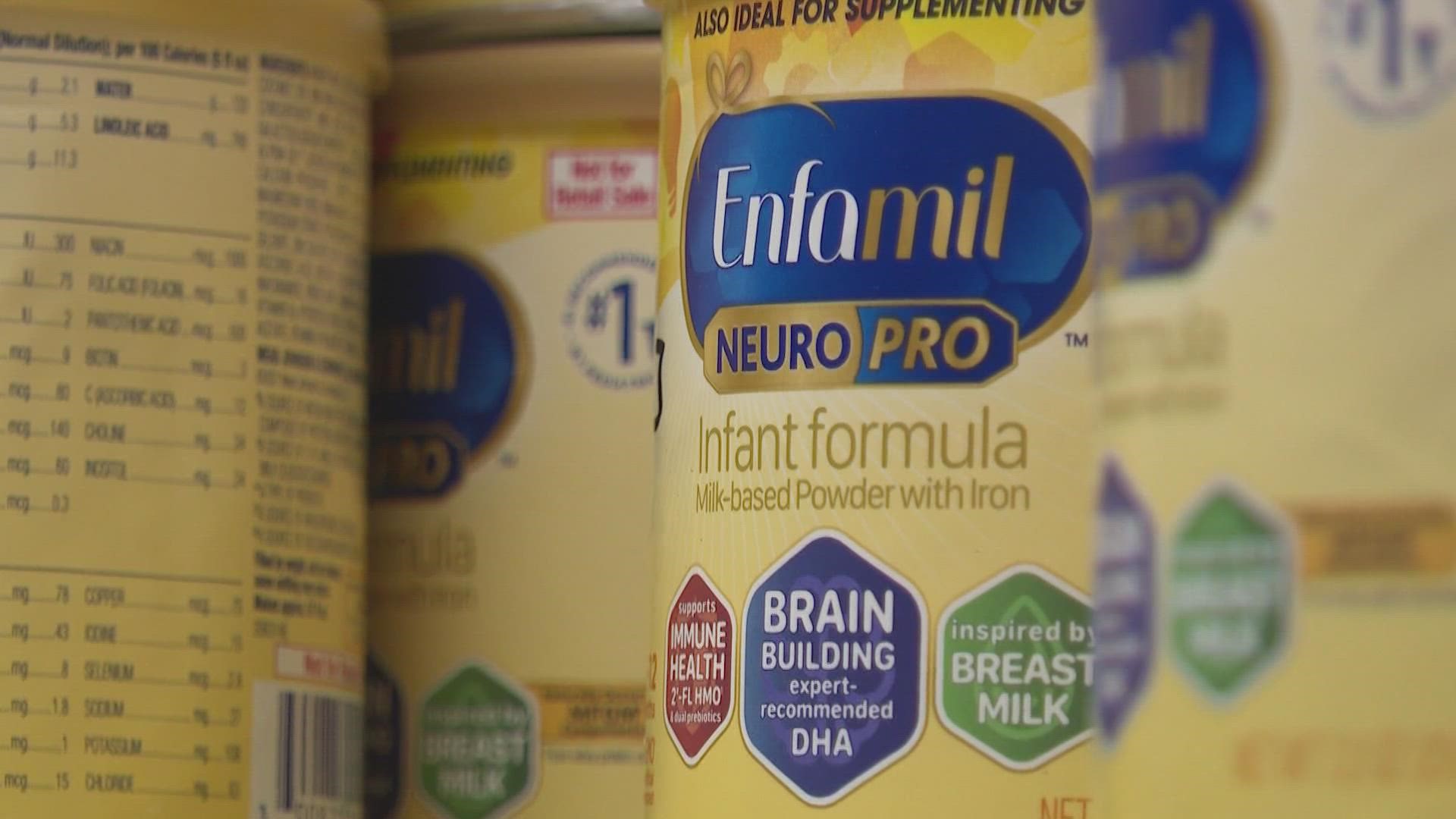OLD TOWN, Maine — A mom from Old Town created a Facebook page to help connect parents in Maine searching for baby formula amid a nationwide shortage.
On Maine Baby Formula Shortage Help, parents identify where they see formula and post in the group to let others know where some is available.
Elizabeth Huitt started the group after encountering this very problem herself, trying to feed her six-month-old, Nolan.
"By like the third store, I started sobbing. Because I was like, 'What if I can't feed my son?' And that fear just became so real because you just don't know what you're going to do. Like, where do you turn? There's nothing out there," Huitt said.
Huitt has mailed and even hand-delivered formula to parents in the group who live nearby.
"I would travel states away just to find food for my son. I would drive six hours if it meant to feed him. So I know there are other mothers and other caregivers out there that are thinking the exact same thing," Huitt said.
Another solution for parents is donor breast milk. Pediatric Associates of Lewiston operates one of just two donor milk dispensaries in Maine. Program director Darcy Millett said they get calls every day.
"Seeing their frustrations — it's hard to know I can't fix it for them," Millett said.
But donor breast milk is expensive. It usually costs $4 to $5 an ounce, and insurance does not cover it. MaineCare will start covering it in 2023. Right now, parents need a prescription to get donor breast milk. The two locations in the state will often write one for parents who come in needing milk.
Millett is expecting a baby girl in August and is also concerned about supply in case she is unable to breastfeed her new daughter.
Informal milk sharing is another option, but it comes with risks. Millett is one of several health experts, including board-licensed lactation consultant Kara Kaikini, president of Maine State Breastfeeding Coalition, who said parents exploring this option need to ask the donor if they have any infectious diseases or are taking any medications or substances that could get passed to a baby through breast milk.
One challenging aspect of this for parents is the guilt that comes with not being able to provide for their children, even when the circumstances are beyond their control.
"I also felt like a failure not being able to provide for my own son. How could I not do this? This is the one job I have is to care for my own son, and now I can't even do that," Huitt said.
"Anything that you're doing for your child is beneficial, so you're not a failure, and it's not an easy process," Millett said.
The circumstances around this shortage convinced Huitt to take action. The mother admitted she never thought her page would get as many followers as it now has: more than 900.
"This was the only alternative left is to come together and figure out how we can help each other out," Huitt said.

